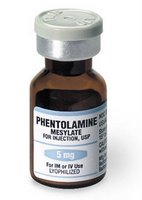 "NHBD" is slowly being replaced by "DCD" ("donation after cardiac death"), but whatever name it goes by, these organ-donor protocols continue to get (deservedly) close scrutiny, most recently in the New Scientist. The move away from brain death and toward cardiopulmonary death is, contrary to the implications of this article, not evidence of a "new" standard for determining when death occurs, but rather is a return to the old way of determining death. Most states retained cardiopulmonary death when they adopted brain death, so no change in law is needed except in the few states that made neurological criteria the sole standard for determining when death occurs. The real concerns -- and this is brought out in the article -- are over whether the existing protocols run roughshod over the the requirement that the absence of cardiac and pulmonary function be irreversible and whether the administration of regitine and heparin cause the cessation of cardiopulmonary function. For more on all this, a good place to start is the 1997 IOM report, "Non-Heart-Beating Organ Transplantation: Medical and Ethical Issues in Procurement."
"NHBD" is slowly being replaced by "DCD" ("donation after cardiac death"), but whatever name it goes by, these organ-donor protocols continue to get (deservedly) close scrutiny, most recently in the New Scientist. The move away from brain death and toward cardiopulmonary death is, contrary to the implications of this article, not evidence of a "new" standard for determining when death occurs, but rather is a return to the old way of determining death. Most states retained cardiopulmonary death when they adopted brain death, so no change in law is needed except in the few states that made neurological criteria the sole standard for determining when death occurs. The real concerns -- and this is brought out in the article -- are over whether the existing protocols run roughshod over the the requirement that the absence of cardiac and pulmonary function be irreversible and whether the administration of regitine and heparin cause the cessation of cardiopulmonary function. For more on all this, a good place to start is the 1997 IOM report, "Non-Heart-Beating Organ Transplantation: Medical and Ethical Issues in Procurement."
Health care law (including regulatory and compliance issues, public health law, medical ethics, and life sciences), with digressions into constitutional law, statutory interpretation, poetry, and other things that matter
Sunday, August 13, 2006
More on non-heart-beating organ donors
 "NHBD" is slowly being replaced by "DCD" ("donation after cardiac death"), but whatever name it goes by, these organ-donor protocols continue to get (deservedly) close scrutiny, most recently in the New Scientist. The move away from brain death and toward cardiopulmonary death is, contrary to the implications of this article, not evidence of a "new" standard for determining when death occurs, but rather is a return to the old way of determining death. Most states retained cardiopulmonary death when they adopted brain death, so no change in law is needed except in the few states that made neurological criteria the sole standard for determining when death occurs. The real concerns -- and this is brought out in the article -- are over whether the existing protocols run roughshod over the the requirement that the absence of cardiac and pulmonary function be irreversible and whether the administration of regitine and heparin cause the cessation of cardiopulmonary function. For more on all this, a good place to start is the 1997 IOM report, "Non-Heart-Beating Organ Transplantation: Medical and Ethical Issues in Procurement."
"NHBD" is slowly being replaced by "DCD" ("donation after cardiac death"), but whatever name it goes by, these organ-donor protocols continue to get (deservedly) close scrutiny, most recently in the New Scientist. The move away from brain death and toward cardiopulmonary death is, contrary to the implications of this article, not evidence of a "new" standard for determining when death occurs, but rather is a return to the old way of determining death. Most states retained cardiopulmonary death when they adopted brain death, so no change in law is needed except in the few states that made neurological criteria the sole standard for determining when death occurs. The real concerns -- and this is brought out in the article -- are over whether the existing protocols run roughshod over the the requirement that the absence of cardiac and pulmonary function be irreversible and whether the administration of regitine and heparin cause the cessation of cardiopulmonary function. For more on all this, a good place to start is the 1997 IOM report, "Non-Heart-Beating Organ Transplantation: Medical and Ethical Issues in Procurement."
Subscribe to:
Post Comments (Atom)
No comments:
Post a Comment